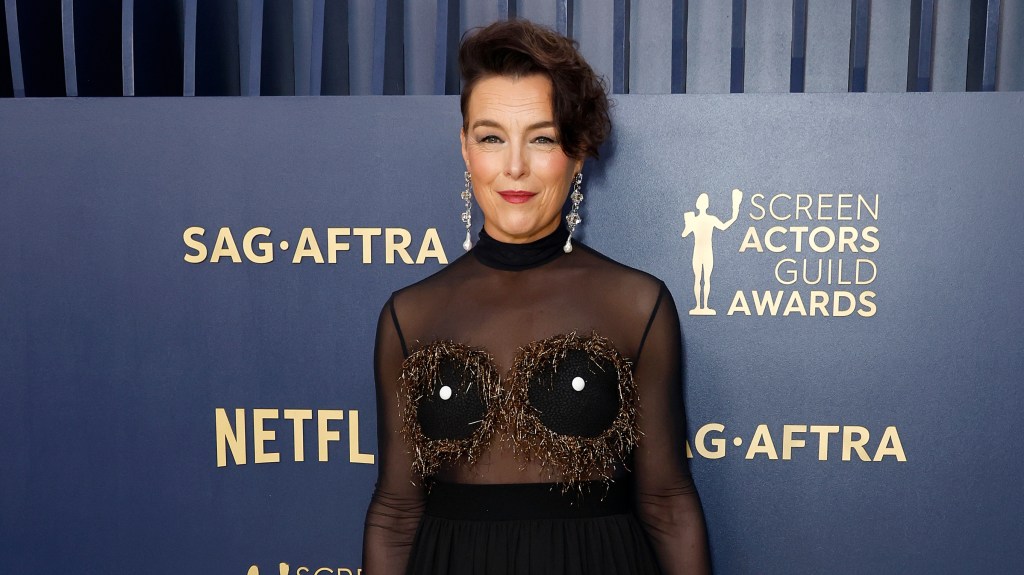Olivia Williams Opens Up About Her Cancer Journey: A Story of Misdiagnosis and Resilience
British actress Olivia Williams, known for her roles in The Sixth Sense and The Crown, has revealed her two-year battle with cancer following a series of medical misdiagnoses. The 55-year-old star shared her emotional journey in a recent interview, describing how persistent symptoms were initially dismissed by doctors before she received an accurate diagnosis. Williams’ story highlights systemic challenges in cancer detection and the resilience required to navigate healthcare uncertainties.
The Hidden Struggle Behind the Spotlight
Williams first noticed concerning symptoms in 2021 but faced repeated dismissals from medical professionals. “I was told it was probably stress or perimenopause,” she recounted. “When you’re an actress of a certain age, there’s an automatic assumption that any physical complaint must be hormonal or psychological.” Her experience mirrors findings from Cancer Research UK showing that women over 50 face 27% longer diagnostic delays compared to men in the same age group.
The actress eventually sought private healthcare, where tests revealed a malignant tumor. “The moment of diagnosis was strangely relieving after months of being told I was imagining things,” Williams said. Her case underscores a troubling trend identified in a 2023 BMJ study:
- Nearly 1 in 4 cancer patients experience initial misdiagnosis
- Gynecological cancers have the highest misdiagnosis rates at 34%
- Average diagnostic delay for these cases exceeds 6 months
The Emotional Toll of Medical Gaslighting
Williams’ account introduces the term “medical gaslighting” to mainstream discourse—when healthcare providers dismiss or minimize patients’ symptoms. Dr. Sarah Jenkins, an oncologist at London’s Royal Marsden Hospital, explains: “Women, especially middle-aged women, often fall victim to diagnostic overshadowing. Their symptoms get attributed to stress or aging rather than receiving proper investigation.”
The psychological impact proved nearly as debilitating as the physical illness for Williams. “You start questioning your own sanity,” she admitted. “When multiple doctors insist nothing’s wrong, you begin to wonder if you’re being hysterical.” A 2022 University College London study found that 68% of misdiagnosed patients developed anxiety or depression during their diagnostic odyssey.
Navigating Treatment and Career Challenges
Following her diagnosis, Williams faced difficult decisions about disclosing her condition in the entertainment industry. “There’s an unspoken fear that being ill makes you uninsurable or unreliable,” she noted. Her experience reflects broader industry challenges—a SAG-AFTRA report found that 42% of actors conceal serious health conditions to protect their employability.
Treatment required Williams to step away from several projects, including a planned West End production. “Cancer doesn’t care about your schedule or ambitions,” she said wryly. Yet she credits her medical team’s personalized approach for enabling her to continue working when possible. “They treated me as a whole person, not just a diagnosis.”
Raising Awareness and Advocating for Change
Now in remission, Williams has become an advocate for cancer awareness and diagnostic reform. She supports initiatives like the UK’s Faster Diagnosis Standard, which aims for 75% of cancer cases to receive a definitive diagnosis within 28 days of referral. “If my story helps one person persist until they get answers, it’s worth sharing,” she stated.
Medical professionals emphasize the importance of Williams’ advocacy. “Celebrity stories dramatically increase public awareness,” notes Dr. Jenkins. “After similar disclosures by other public figures, we typically see a 20-30% increase in relevant screening requests.”
The Road Ahead: Improving Diagnostic Accuracy
Williams’ experience highlights several areas for healthcare improvement:
- Enhanced physician training on atypical presentations
- Better utilization of diagnostic tools like tumor marker tests
- Increased research into gender-specific diagnostic protocols
As Williams continues her recovery, she maintains cautious optimism. “Cancer leaves scars, but also perspective,” she reflected. “I’ve learned to trust my instincts and fight for my health—lessons I hope others can learn without going through what I did.” Her story serves as both a cautionary tale and inspiration for patients and medical professionals alike.
Call to Action: If you or a loved one experiences persistent unexplained symptoms, consult Cancer Research UK’s symptom checklist and advocate for thorough investigation. Early detection saves lives.
See more WebMD Network


